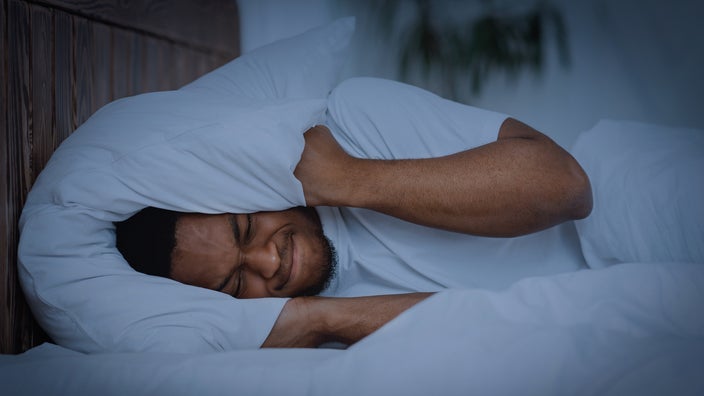On this website, some posts contain affiliate links, which means that if you buy a product using my link, I may earn a commission.
Coffee does not instantly make you feel tired, but once the body fully metabolizes caffeine, it can lead to fatigue. Caffeine increases alertness by interfering with brain chemicals that regulate the sleep-wake cycle.
However, it has limited effects on higher cognitive processes and cannot mask underlying sleepiness indefinitely. Coffee blocks the effects of adenosine, a molecule that naturally makes you feel sleepy. As a diuretic, coffee can contribute to dehydration and fatigue. Additionally, caffeine affects individuals differently due to their genetic makeup, with some people experiencing a paradoxical effect that makes them feel more sleepy after consuming it.
Ultimately, continued or excessive caffeine consumption negatively impacts sleep and can leave you feeling tired.
How Caffeine Affects Your Alertness
Does Coffee Make You Tired? Caffeine increases alertness by interfering with certain chemical processes in the brain that regulate the sleep-wake cycle. However, once the body completely metabolizes caffeine, it can make people feel tired. Coffee itself won’t instantly make you feel tired, but the caffeine it contains may actually lead to fatigue after regularly drinking it over time. Adenosine, a molecule that’s naturally produced by your body and can make you feel sleepy, is blocked by caffeine. This prevents you from feeling sleepy temporarily. However, the body can adapt to caffeine over time, reducing its effect in keeping you awake. Additionally, caffeine has limited effects on higher cognitive processes and cannot mask underlying sleepiness indefinitely. It’s important to get enough sleep as coffee alone cannot replace the need for proper rest. There are also other factors like adenosine build-up and dehydration that can contribute to feeling tired after drinking coffee. Everyone’s response to caffeine differs due to genetic makeup, as some individuals may have less-sticky adenosine receptors, making caffeine less effective in keeping them awake. While caffeine can have different effects on people with ADHD, it can paradoxically make some individuals with ADHD feel sleepier. Therefore, it’s essential to consider individual differences and listen to your body when it comes to caffeine consumption and its effect on your alertness and sleepiness.
The Aftermath Of Caffeine Metabolism
The body’s complete caffeine metabolism can cause fatigue. When caffeine is metabolized, it interferes with chemical processes in the brain that regulate the sleep-wake cycle, increasing alertness. However, once the body completely metabolizes caffeine, it can make people feel tired. Coffee itself won’t instantly make you feel tired, but the caffeine it contains may lead to fatigue after regularly drinking it over time.
Caffeine blocks the effects of adenosine, a molecule that’s naturally produced by the body and can make you feel sleepy. When adenosine is blocked, you don’t feel sleepy. However, the body adapts to caffeine, and regular consumption can negatively impact sleep, leading to increased tiredness.
Additionally, coffee is a diuretic, which can cause dehydration if not enough fluids are consumed. Dehydration may contribute to fatigue. Moreover, caffeine can affect individuals differently based on their genetic makeup. Some people’s adenosine receptors are less sensitive to caffeine, so it may not have much effect on them.
In conclusion, while coffee may initially increase alertness, the complete metabolism of caffeine can lead to tiredness. Factors such as adenosine blocking, dehydration, and individual genetic makeup can all play a role in the impact of coffee on fatigue levels.
Adenosine And The Caffeine Crash
| Does Coffee Make You Tired? |
Caffeine increases alertness by interfering with certain chemical processes in the brain that regulate the sleep-wake cycle. However, once the body completely metabolizes caffeine, it can make people feel tired. Coffee itself won’t instantly make you feel tired, but the caffeine it contains may actually lead to fatigue after regularly drinking it over time.
Adenosine, a molecule naturally produced by the body, is responsible for sleepiness. Coffee blocks the effects of adenosine, which can make you feel sleepy. However, the body can adapt to adenosine blockage, and regular caffeine consumption can negatively impact sleep, leading to increased tiredness.
Additionally, coffee is a diuretic and can cause dehydration, which can contribute to fatigue. The effects of adenosine build-up, dehydration, and sleep debt can all contribute to feeling tired after consuming coffee.
It’s important to remember that the effect of caffeine can vary from person to person due to genetic factors. Some individuals may not experience the same level of alertness or may even feel more sleepy after consuming caffeine.
Ultimately, while coffee can temporarily increase alertness, it’s essential to prioritize getting enough sleep as coffee’s effects on higher cognitive processes are limited, and it cannot mask underlying sleepiness indefinitely.
Dehydration And Fatigue
| Does Coffee Make You Tired |
- Caffeine increases alertness by interfering with certain chemical processes in the brain that regulate the sleep-wake cycle
- However, once the body completely metabolizes caffeine, it can make people feel tired
- Coffee itself won’t instantly make you feel tired, but the caffeine it contains may actually lead to fatigue after regularly drinking it over time
- Adenosine is a molecule that’s naturally produced by your body and can make you feel sleepy. When you consume coffee, it blocks the effects of adenosine
- Coffee contains stimulating caffeine, but it has its limits. You might feel tired as you feel the effects of adenosine build-up, dehydration, and sleep debt
- Caffeine can make you feel tired when it wears off, but it also may not be the caffeine at all. High sleep debt and being in an energy dip can contribute to feeling sleepy
- Caffeine blocks adenosine from working on brain cells, preventing you from feeling sleepy. However, the body can adapt to caffeine over time
- Ultimately, continued or increased caffeine consumption negatively impacts sleep, making us feel more tired
- The amount of caffeine required to produce effects may differ for individuals due to genetic makeup and interactions with dopamine
- Some people with ADHD experience a paradoxical effect to caffeine, feeling more sleepy after consuming it
Other Factors Contributing To Sleepiness
While coffee increases alertness, the caffeine it contains can lead to fatigue once completely metabolized. Coffee blocks the effects of adenosine, a molecule that naturally induces sleepiness, resulting in feeling tired after regular consumption. Additionally, caffeine can have limited effects on higher cognitive processes, and it cannot mask underlying sleepiness indefinitely.
- Caffeine increases alertness by interfering with certain chemical processes in the brain that regulate the sleep-wake cycle.
- Once the body completely metabolizes caffeine, it can make people feel tired.
- Coffee itself won’t instantly make you feel tired, but the caffeine it contains may actually lead to fatigue after regularly drinking it over time.
- Coffee has limited effects for higher cognitive processes and cannot mask underlying sleepiness forever.
- Adenosine, a molecule produced by the body, can make you feel sleepy, and caffeine blocks its effects.
- High sleep debt and being in an energy dip can contribute to feeling tired, even with caffeine consumption.
- Continued or increased caffeine consumption negatively impacts sleep, leading to increased tiredness.
- Individual genetic makeup and adenosine receptor sensitivity can influence how caffeine affects each person.
- Some individuals with ADHD may experience a paradoxical effect to caffeine and feel more sleepy after consuming it.
Adaptation To Caffeine’s Effects
Coffee can increase alertness by interfering with brain chemicals that regulate the sleep-wake cycle. However, once caffeine is metabolized, it can make people feel tired. Regular consumption of coffee can lead to fatigue.
| Does Coffee Make You Tired? |
Negative Impact Of Caffeine On Sleep
| Does Coffee Make You Tired? |
Caffeine increases alertness by interfering with certain chemical processes in the brain that regulate the sleep-wake cycle. However, once the body completely metabolizes caffeine, it can make people feel tired. Coffee itself won’t instantly make you feel tired, but the caffeine it contains may actually lead to fatigue after regularly drinking it over time.
Adenosine, a molecule naturally produced by the body, can make you feel sleepy. Caffeine blocks the effects of adenosine, preventing you from feeling sleepy initially. However, the body adapts to caffeine, and regular consumption may negatively impact sleep, making you feel more tired in the long run.
Furthermore, coffee is a diuretic and can lead to increased body fluid removal. While caffeine is a mild diuretic, it is unlikely to cause dehydration and sleepiness directly.
The effects of caffeine vary among individuals due to genetic makeup. Some individuals have more “sticky” adenosine receptors, allowing caffeine to have a greater effect on their bodies, while others may experience a paradoxical effect or minimal impact from caffeine consumption.
Ultimately, continued or increased caffeine consumption negatively impacts sleep, which can result in feeling more tired over time.
Genetic Variation And Caffeine’s Effects
| Does Coffee Make You Tired? |
| Genetic Variation and Caffeine’s Effects |
| Adenosine receptors and caffeine binding |
Caffeine increases alertness by interfering with certain chemical processes in the brain that regulate the sleep-wake cycle. However, once the body completely metabolizes caffeine, it can make people feel tired. Coffee itself won’t instantly make you feel tired, but the caffeine it contains may actually lead to fatigue after regularly drinking it over time.
Adenosine is a molecule that’s naturally produced by your body and can make you feel sleepy. When caffeine is consumed, it blocks the effects of adenosine, preventing you from feeling sleepy. However, the body can adapt to the effects of caffeine, and regular consumption may lead to a decreased response.
Additionally, each person has a different genetic makeup, including their adenosine receptors. Some individuals have adenosine receptors that caffeine binds well to, resulting in a significant caffeine effect on their bodies. However, for others, their adenosine receptors may not be as “sticky,” leading to caffeine having less of an impact.
It’s also important to note that caffeine consumption can negatively impact sleep, leading to increased tiredness overall. While caffeine can provide temporary energy and alertness, continued or increased consumption can disrupt sleep patterns, ultimately leading to feeling more tired.
Therefore, while coffee may initially increase alertness, it’s essential to be mindful of individual differences in caffeine sensitivity and to maintain a healthy sleep routine to avoid excessive tiredness caused by caffeine consumption.


Credit: www.goodrx.com
Frequently Asked Questions For Does Coffee Make You Tired
Why Do I Get Sleepy After Drinking Coffee?
Caffeine in coffee interferes with brain chemicals that regulate sleep-wake cycle, increasing alertness. However, once caffeine is metabolized, it can make you feel tired. Regular consumption can lead to fatigue due to effects like adenosine build-up and dehydration. Continued or increased caffeine consumption negatively impacts sleep, making you feel more tired.
Why Does Caffeine Not Give Me Energy?
Caffeine may not give you energy because it interacts with adenosine receptors in the brain, but not everyone’s receptors are affected the same way. Some people have less “sticky” receptors, resulting in caffeine having less of an effect. +
Does Coffee Make Adhd Sleepy?
Coffee may make some individuals with ADHD feel sleepy due to caffeine’s interaction with dopamine.
Does Coffee Affect Sleep?
Coffee can affect sleep by interfering with the brain’s sleep-wake cycle. Once caffeine is metabolized, it can make you feel tired. The effects of coffee on sleepiness can be attributed to adenosine and dehydration. Caffeine blocks adenosine, a molecule that induces sleepiness, and coffee acts as a diuretic leading to dehydration.
Additionally, caffeine can have varying effects on different individuals based on their genetics and receptors. Caffeine consumption can also negatively impact sleep in the long run. Some people with ADHD may experience a paradoxical effect and feel sleepier after consuming caffeine.
Conclusion
While coffee increases alertness due to its caffeine content, once the body metabolizes it completely, it can actually lead to tiredness. This is because caffeine blocks the effects of adenosine, a naturally produced molecule that makes you feel sleepy. Additionally, caffeine consumption can negatively impact sleep quality, leading to increased fatigue over time.
It’s important to get enough sleep and be aware of the limits of caffeine’s stimulating effects to avoid feeling tired.
On this website, some posts contain affiliate links, which means that if you buy a product using my link, I may earn a commission.

